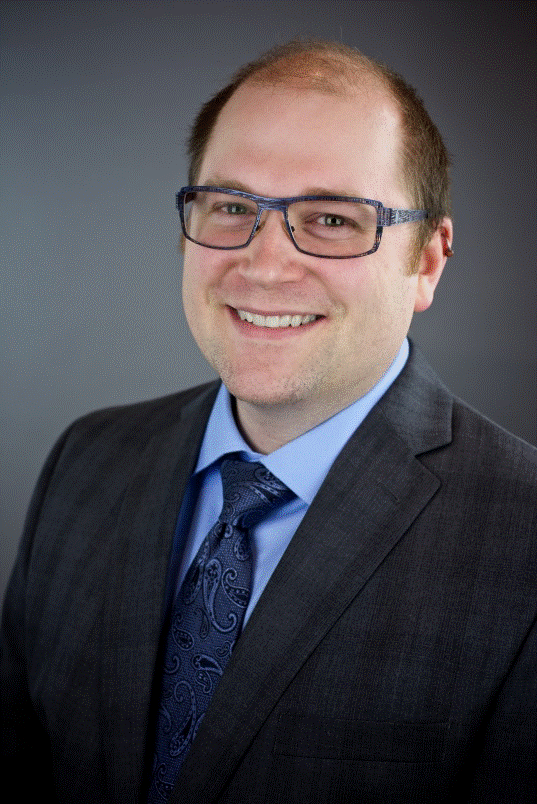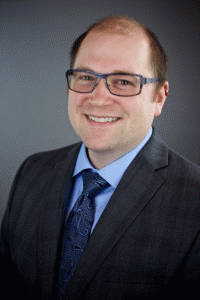By A. Faulkner
What is your role in the GLBTRT?
I’m a member of the web committee. I primarily do content editing for the GLBTRT web pages and help maintain the awards lists on LibraryThing. I’m not generally the person who is writing the content for the website but I do ensure that it matches the style guide and follows the defined format for the pages it appears on. It’s my goal to help make sure things can be found and make sense once they are.
What does the GLBTRT mean to you?
For me, the GLBTRT is a symbol, a community, and a professional opportunity. It stands as a testament to the acceptance and inclusion of LGBTQ+ people within the library profession. It is also a readily available community for new members of the profession to find professional contacts who will accept them. For me personally, it’s a way to turn my sexuality, which can be a professional liability, into a professional asset.
Are you involved in ALA in other ways?
I serve on the ACRL Residency Interest Group Web Committee. I’m also a member of ACRL, ACRL Digital Curation Interest Group, ACRL Residency Interest Group, ACRL Rare Books and Manuscripts Section, and LITA.
What professional work do you perform?
I am the Resident Librarian at Virginia Tech and was hired as part of the pilot cohort of the Diversity Alliance for Academic Librarianship (now the ACRL Diversity Alliance for Academic Librarianship). I spent some time working in various departments and helping with various diversity and inclusion efforts in the library. After my rotation year finished, I settled down in Special Collections and Archives.
My current functional title is Community Collections Archivist. I work as an archivist doing normal archival things such as processing collections, providing reference services, creating exhibits, etc. I also work on efforts to form lasting connections between traditionally marginalized groups and the archives. As part of that effort, I work to understand how communities view and interact with their own history and historical documentation so that the archives can preserve and offer access to that history in a way that will be useful to the community. A lot of the work involves admitting that the archival profession has been a poor partner in the past and working to forge new relationships for the future.
What would you like to share about your personal life?
My husband and I were married in April 2012 after Minnesota and the Community of Christ church both chose to allow same-sex unions. A few months later, I accepted the position at Virginia Tech and moved. My husband stayed in St. Paul, MN where he attends law school. It has been hard but we video chat daily and see each other as often as we can afford. There’s also a natural end in sight: both my residency and his law school will end at the same time. The plan is for us to move back together at that time.
What are you most proud of?
This is a hard question. The answer changes easily. For now, I’d say it was my work with the Native Voices: Native People’s Concepts of Health and Illness traveling exhibition. The exhibit is currently touring the country via the ALA Public Programs Office. While it was here at Virginia Tech, we were able to connect the content of the exhibit with the goals of various departments on campus, from our arts center to our human nutrition program to our affiliated medical school. The events we held helped make connections between the local Native community and Virginia Tech as well as connections between academic disciplines that typically don’t interact very much.
Who inspires you?
First and foremost, my husband. His support and passion helped inspire me to return to school, get my MLIS, and pursue an actual career rather than settling for a job. Professionally, there are two people who inspire me immensely: Samantha R. Winn and April Hathcock. The first, Samantha R. Winn, is a coworker in Special Collections at Virginia Tech. She is passionate about the work she does in support of marginalized and oppressed communities. She’s also not afraid to admit that she doesn’t know it all when it comes to that work. I’ve learned a ton from her already and am grateful every day that I have the chance to learn more. The second, April Hathcock, is a well known voice in the fight for social justice within libraries. She was the keynote speaker at the National Diversity in Libraries Conference and she delivers insightful (and sometimes necessarily painful) truths via her blog.
What are your goals? (Professional and/or personal.)
Personally, I’d like to eventually move back to the Twin Cities metro area. I love it there. Professionally, I’d like to establish myself in an archives department working with an LGBTQ+ collection or a theatrical collection. If I can find a place that has both, that would be even better. I have a passion for the theatre and would love to work with a collection on that topic but I also want to continue working to improve representation for marginalized groups. Long term, I’d like to end up at the University of Minnesota and work with the Jean-Nickolaus Tretter Collection and/or the Performing Arts Archives.
What do you think (or predict) is the future of libraries?
I think we’re already seeing hints of what libraries will be. Much of the content is moving online and libraries are adding more and more community focused services. In some ways, this is simply a natural expansion of the library’s role as a third place of community theory (i.e. a place other than work or home where a person engages with their community). Ultimately, I don’t see print books and journals going away. I also don’t see eBooks and eJournals going away. Public libraries will likely have more print while school and academic libraries will have more electronic. (I’m not forgetting special libraries but they defy all of this and will evolve their own way.) It’s the community services – support groups, educational programs, free Internet access, providing a haven during riots, etc. – that will define the library of the future.
In what direction would you like the GLBTRT to move in the future?
I’d love to see the GLBTRT become a stronger voice for advocacy within the ALA. The overall organization is naturally moderate on many issues. Statements are made politically in an effort to address situations without offending people. I’d like to see the GLBTRT take a more bold stance of advocacy for all marginalized and oppressed people. We should be partnering heavily with the Black Caucus and other ALA groups interested in social justice issues.
If you could be transported into the fictional world of any book, where would you go?
This is easy. No thinking required. I would absolutely go to The Four Lands from the Shannara series by Terry Brooks. These books are the reason I read. They are the reason I have an MLIS. I hated reading as a child (had some vision issues). When I was 13, a neighbor took me to a summer reading program at the Potomac Community Library (Prince William County Public Library System in Virginia). I picked up the first book of the Heritage of Shannara tetralogy and then spent the rest of the summer in my room reading every book Terry Brooks had written up to that point. To this day, that world is my favorite fictional world.
What would be the title of your autobiography?
Jack of All Trades, Master of One
If you could only choose one song to play every time you entered a room for the rest of your life, what would it be?
Here is the House by Depeche Mode
If you could have a dinner party with 5 culturally or historically significant figures, living or dead, who would you invite?
Taliesin Jaffe, Caroline of Ansbach, Brian Boru, George Washington Carver, Emma Watson
What is the meaning of life?
42 – now, what’s the question?


